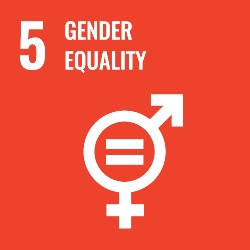.jpg)
Harnessing the power of volunteers to deal with the COVID-19 crisis
Professor Duncan Shaw’s research has been pivotal in helping local and UK government to prepare to harness the power of volunteers. This has been used during the COVID-19 crisis including in the setting up of local community groups to support the vulnerable and shielded people.
The challenge
When a crisis hits, many people are willing to step up and volunteer their help. But how do you ensure people with minimal training or expertise help in a co-ordinated way alongside the official response?
Manchester’s response
Duncan Shaw is Professor of Operations and Critical Systems at The University of Manchester’s Alliance Manchester Business School and contributes to the work of our Humanitarian Conflict and Research Institute.
Professor Shaw’s research led the writing of the international standard ISO 22319, which is used worldwide for planning the involvement of spontaneous volunteers in incident response and recovery.
Since the COVID-19 crisis took hold, Professor Shaw has been volunteering with several local authorities, including Greater Manchester, Thames Valley and Essex on how to maximise involvement with their new volunteer workforce. It’s a scale-up of his research he never expected.
“When we did the original research, we were thinking of 100, maybe 200, volunteers spontaneously offering their help,” Professor Shaw says. “Then we saw a thousand appear in Chile last year, which wasn’t really in our thinking. The 750,000 volunteers for the NHS and countless others volunteering to other local organisations is awe-inspiring.
“It’s an astonishing effort, reflecting one of the most difficult periods that the country has recently encountered.”
The research has stood up to the challenge. “All the same principles and advice I would give if you were dealing with a hundred volunteers is exactly the same as what I would advise in dealing with a large number of volunteers,” he says. “All of the guidance that I’ve been developing is still applicable, just on a scale that was not anticipated.”
Professor Shaw says the UK has been “energised” to volunteer by the obvious need of vulnerable people due to the pandemic.
“You’ve got a whole group of people whose freedoms have been restricted,” he says.
“All of the normal decision making we do on a daily basis has been taken away and so this expression of volunteering is one way of people taking back control of their lives. It’s one way we’re trying to cope with this incredibly unusual situation we find ourselves in.”
Helping local authorities
Professor Shaw said the role of local government officials were often overlooked.
“They are making important decisions and establishing new processes and capabilities at a pace which is just extraordinary,” he said. “They are making government work and it’s worth remembering that for all that fantastic work that’s going on out there that’s visible, there’s a whole lot of work being done in local government that’s completely invisible but essential.”
As well as dealing with current demands, Professor Shaw also has one eye on what happens next.
“That’s more looking at the recovery after COVID-19 relaxes and people are coming out of their homes and people emerge from their chrysalis that they’ve built,” he says.
Changing the way government works
Professor Shaw says the crisis has forced the UK government to take a fundamentally different view of volunteering and their risk, particularly with the NHS Volunteer Responder programme.
“Here, the thinking is about the risk to the vulnerable people. The way we’re dealing with that is through DBS (Disclosure and Barring Service) checks,” he says.
“We’ve had 750,000 volunteers registered in three or four days and DBS checks are expected to be done just as rapidly – there’s been a fundamental change in the urgency that’s come through this crisis.
"The response is an extraordinary effort by government. You’ve got a whole group of staff who realise that people will die and we don’t want that to happen. So we come together.”
Changing the perspective about volunteering
Professor Shaw hopes that the UK retains this desire and appreciation to volunteer when the crisis is over.
“COVID-19 has fundamentally changed how we look at volunteering. Instead of thinking about volunteering as an activity that only a few people might do following a disaster, this has completely changed that perspective,” he says.
“The UK has taken a leap forward. It has renewed a caring tradition to help each other and be aware of the vulnerabilities that each other have.”
Professor Shaw notes that UK volunteers still face testing times. He has closely watched what happened in Italy, where volunteers have been shunned because of fears they carried the virus and some supermarkets were unhelpful toward those shopping for others.
“I think being positive is important and being realistic is important,” he says.
“We are in extraordinary circumstances and when it returns to normality, we need to try to preserve the best features of what we’ve seen over the last few weeks.”
Find out more
Meet the researcher:
Manchester briefing on COVID-19:
- Sign up to our weekly briefing to help prompt your thinking on response to, and recovery from, COVID-19.

